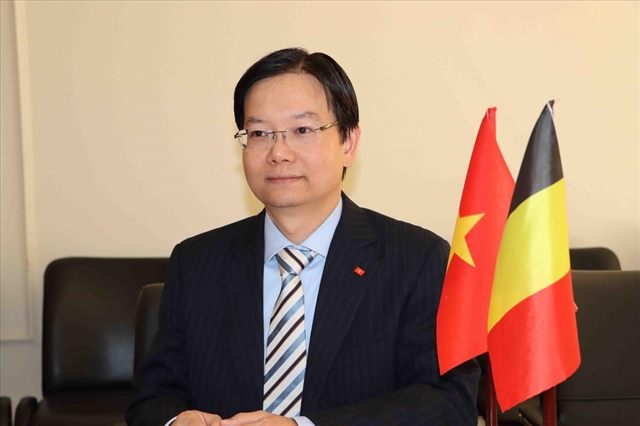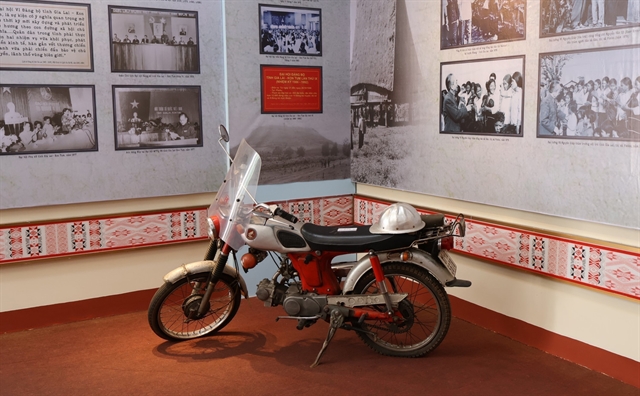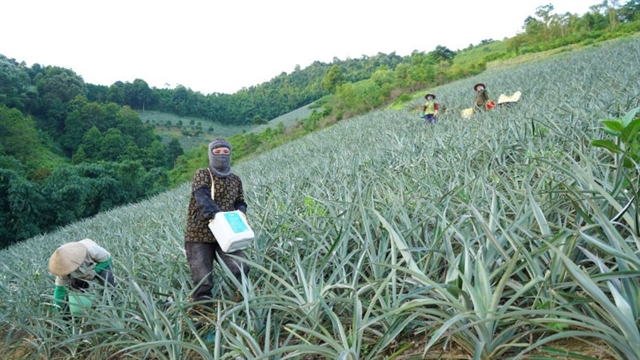 Society
Society

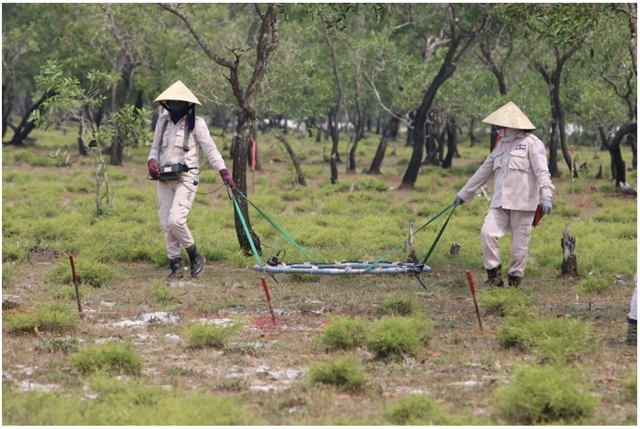 |
| MAT 31 members are working in the field. Photo ldxh.vn |
QUẢNG TRỊ — Overcoming doubts and prejudices, many women in central Quảng Trị Province choose to engage in clearing bombs, mines and explosives left over after the war.
The activity is called "death hunting" and it contributes to cleaning up polluted land for people to cultivate and develop the economy.
Quảng Trị is a locality that suffered many consequences and heavy damage during the war, and it has the highest density of bomb and mine contamination in the country.
This is also the first locality in the country to be allowed by the Government to implement co-operation programmes with foreign non-governmental organisations in the field of clearing post-war bombs and mines.
Currently, there are many organisations and groups in the province that support bomb and mine clearance and awareness raising of the consequences of bombs, mines and explosive materials.
In particular, many organisations have established specialised clearance teams with women members, and the MAT 31 Team of the Mines Advisory Group (MAG) is a typical example.
According to Lê Thị Ngọc Bích, 46, a resident in Gio Phong Commune of Gio Linh District, who is the leader of Team MAT 31, her team was assigned the task of clearing cluster bombs and other types of explosives left over after the war on an area of 377,162sq.m of contaminated land.
The task was carried out from March 18 to June 28 to return clean land to 640 households in Thống Nhất Village, Ngọc said.
Ngọc said that Team MAT 31 was established in 2018 and has 14 members, of which 13 are female and one male, who is a driver and technician.
“All members of MAT 31 have had many years of experience in the profession of "hunting for death", from six years to over 20 years,” she told the Lao động và Xã hội (Labour and Society) newspaper.
“I have been in the profession since 2000. To stick with it for so many years, I had to overcome many doubts, prejudices, and objections from my family and friends,” Ngọc said.
“Working as a deminer is hard enough for men, but it's even more difficult for women because we are always in the field, regardless of sun or rain, facing high potential risks," she said.
“During the time working as a deminer, I often have to leave early and return home late because my house is far from the office and mine fields were far from the city,” she said. “I have relied on my husband to do all the household chores and take care of the children. Sometimes I have to ask my dad and mom for help.”
“As women, there is almost no time to take care of ourselves and beautify. Because no matter how beautiful we are, when we have to work under harsh sunlight and wind in the central region, we still do it," she said.
Trần Thị Thảo, 32, from Triệu Ái Commune of Triệu Phong District, is a MAT 31 member with a slim figure and glasses, but in the field her actions are extremely agile and decisive.
After receiving information about a suspected location of explosive materials and metal marked by members operating a large ring detector, she immediately arrives, uses a hand detector to identify it, and then digs deep into the ground to find and neutralise “death”.
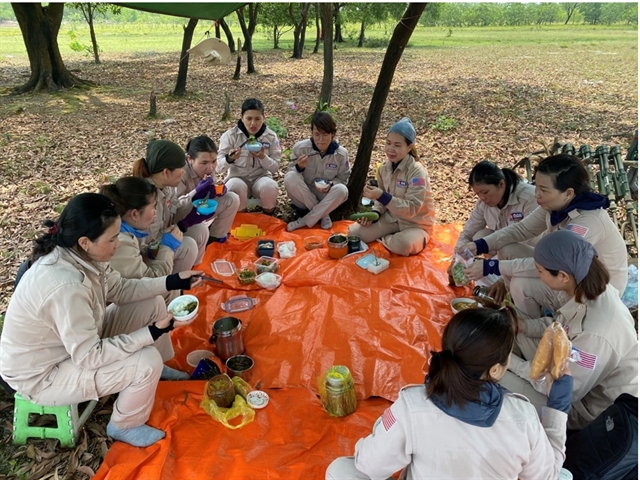 |
| MAT team have lunch together in the field. Photo laodongxahoi.vn |
“In January 2018, through social networks, I learned that MAG in Quảng Trị was recruiting employees. After studying the posted information about the job position and conditions, I applied and was hired,” said Thảo.
“Although I have two children who are taken care by my husband and I have done this hard job for many years, I have never regretted this choice because it brings a stable source of income for myself and helps me contribute in a small way to clear land contaminated with post-war bombs, mines and explosives left in the homeland, returning clean land to people for production,” Thảo confided.
Lessons in not making mistakes in the field
When recruited, all members of the bomb, mine, and explosive material disposal team must undergo training and skills in handling material and situations on a simulation scene and then work in the field.
However, the first time they uncovered bombs and mines at work, they were startled and their hearts pounded.
“The first day of working in the field at a contaminated land in Gio Quang Commune of Gio Linh District, when I received the signal and went to handle it, I discovered an M14 mine commonly used by the US military in the war,” Ngọc recalled.
“At that time, I was scared but remembering the lessons about defusing bombs and mines, I quickly calmed down and continued my work smoothly,” she said.
Another memorable memory was that her boss challenged her by putting a dead snake in a tool box. As soon as she saw the snake, she was loudly screaming, she said.
Later, she found out that it was a way to train our spirit and calmness, thereby making us able to face and overcome situations with a high level of danger in the profession, she said.
Similar to Ngọc, on the second day of working at the field in Hải Lăng District, Thảo also discovered an M33 grenade lying in the open. When cleaning the layer of dry leaves covering her, she saw the grenade and tried to run away.
Yet to this day, she can not remember how many explosive devices she has deactivated because they are too numerous and of many types.
Trần Bình Phương, MAG's field operations manager, said that a field work day for MAG’s demining teams usually lasts eight hours.
To ensure that all members must comply with labour safety measures and the instructions of the direct commander, they wear full protective gear, and use machinery and equipment according to proper techniques, Phương said.
MAT teams are fully equipped with specialised equipment and devices to clear mines and explosives, he said.
At the scene, MAT teams set stakes, use ropes and divide them into small beds. Then two members use a depth scanner to check each bed to detect suspicious objects.
When the detector detects metal, other members place a red triangular plastic plate to mark it, and notify the team leader to send technical staff to handle it.
In areas with flat terrain, soft soil, and little pollution, MAT teams can handle 4,000-4,500sq.m of land on average per day, but for sites with complex terrain and high pollution, only 3,000 - 3,500sq.m can be treated in one day, he added.
MAG is one of many non-governmental organisations working in the field of humanitarian demining in Quảng Trị Province, making an important contribution to reducing landmine accidents in the province and bringing clean and safe land to the people.
Since 1999, the group has completed the clearance of nearly 180 million sq.m of land and handed over clean land to people for farming, and the construction of schools, health stations, roads, and resettlement areas. VNS

